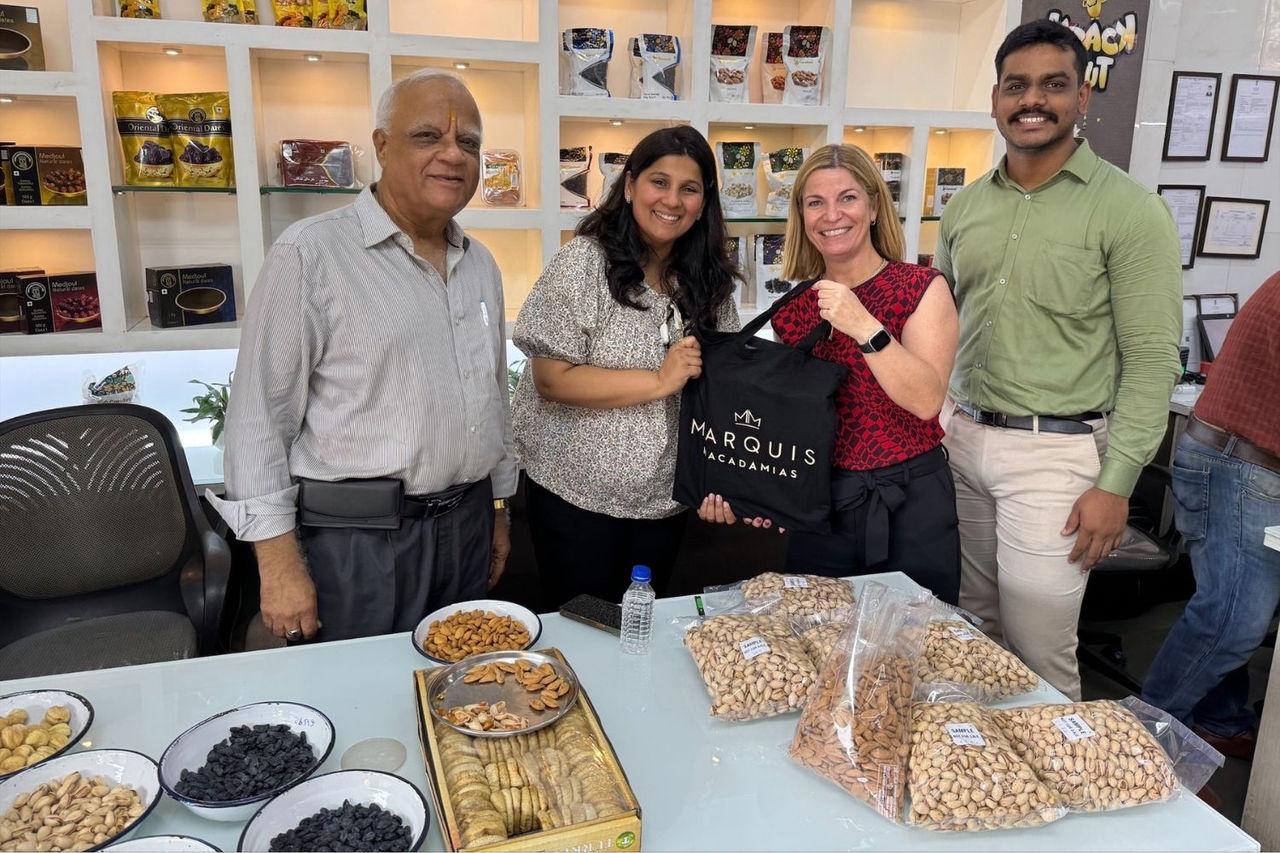The Australia-India Economic Cooperation and Trade Agreement has opened a new market for Marquis Macadamias.
Indian consumers are getting a taste of premium Australian macadamias, thanks to the Australia-India Economic Cooperation and Trade Agreement (AI-ECTA). The reduced import tariffs enabled Marquis Macadamias to send its first container shipment of macadamias to India in September 2023.
The within 3 to 5 years. Marquis’ Chief Sales Officer, George Hagios, agrees that this is now realistic, thanks to AI-ECTA.
‘India is a great market for us. Consumers have a great appetite for nuts and dried fruits. It was always on our radar, but with the previous 30% tariff, the price meant we couldn’t be competitive. So it was never really viable before,’ says Hagios.
Growing an Australian success story
is an Australian grower-owned company. Its facilities in Lismore and Bundaberg process over 28,000 tonnes of nut-in-shell each year. That makes Marquis Australia’s largest grower, processor and marketer of macadamias.
The macadamia industry may still be small, but it is growing fast, says Hagios. Macadamias currently account for around 2% of global tree nut production. However, the resilient and sustainable crop is increasingly attractive to growers.
Marquis expects production will double and treble over the next 5 to 10 years as new trees mature. The company is now working to double the capacity of its Bundaberg production plant. Buyers can be confident of ongoing supply.
Developing a taste for macadamias
Interest in plant-based diets is growing in many markets. India is ahead in that regard and is already a great consumer of nuts. Indians in 2021.
Until now, macadamias have been a niche product and are mainly sold as luxury snacks. They also make an ideal festival gift. Hagios is confident macadamias can become more mainstream as customers understand their versatility.
The range of uses was on show recently at the Australian Macadamia Festival in Mumbai. Dishes from chocolate to curries incorporating macadamias allowed consumers, restauranteurs and chefs to taste Australian macadamias.
Trade agreement helps bring luxury within reach
‘As an exporter, we need import partners to see a future for the product in their market, to make it worthwhile for them to invest as well,’ notes Hagios. ‘Even as a luxury product, the price had to be within reason.’
The AI-ECTA has made an enormous difference there. The previous 30% tariff is now down to 17.1%. It will progressively reduce to zero by 2028.
‘Austrade also helped organise introductions and market visits for buyers. That demonstration of Australian Government backing helps give our Indian partners confidence to deal with us,’ he adds.
 Marquis Macadamias cracks the nut-loving Indian market.
Marquis Macadamias cracks the nut-loving Indian market. Government support helps navigate trade regulations
Marquis already had considerable export experience. Even so, it has been glad of Austrade’s advice and assistance navigating local import regulations.
‘Every country has different requirements for food safety, labelling and customs. You never want to find shipments stuck in port because of an error on a piece of original paperwork,’ says Hagios.
‘Austrade’s introductions to Indian counterparts helped with some of those challenges. The trade agreement itself also sends an important signal that our governments want to work together,’ he adds. ‘And that flows down through the layers of authority.’
Stocking up for future demand
‘The potential market is almost infinite,’ says Bhavin Kadakia, Austrade Director of Business Development in Mumbai. ‘Huge volumes of nuts are consumed at festivals. Government health messages about eating less processed foods only increases demand.
‘Australian macadamias can be an ingredient in foods ranging from confectionary to traditional Indian cuisine, salads, sauces, oil and nut milks. That also brings opportunity for Indian companies to add value by further processing product locally.’
Hagios agrees, ‘We believe ultimately there is sufficient volume to be an industry-changer. But growing the market will require long-term commitment. For now, we’re focused on fulfilling initial demand and building a pipeline for supply.’








